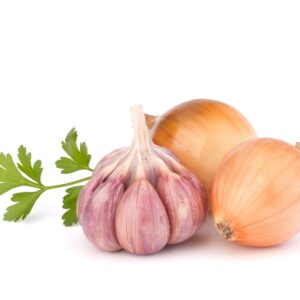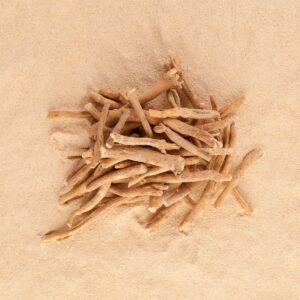Blog
Natural Ways to Boost Testosterone
Testosterone plays a key role in the health of both men and women. It is responsible for building muscle, boosting energy, regulating mood, and maintaining cognitive function. However, as we age, testosterone levels naturally decline at a rate of about 1% to 3% per year after the age of 40. This drop may lead to bothersome symptoms such as low libido, fatigue, weight gain, loss of muscle mass, osteoporosis, and mood disturbances.
Fortunately, there are natural ways to support testosterone production and keep its levels within a healthy range.
Causes of Low Testosterone
- Aging: Testosterone levels gradually start to decrease in men after the age of 30, with a sharper decline after 40.
- Chronic diseases: Such as type 2 diabetes, cardiovascular disease, chronic kidney and liver conditions.
- Obesity: Fat tissue converts testosterone into estrogen, lowering its concentration.
- Medications: Certain drugs like strong painkillers, corticosteroids, and opioids can negatively affect testosterone production.
- Lifestyle factors: lack of physical activity, poor diet, smoking, excessive alcohol consumption, and chronic stress.
Symptoms of Low Testosterone

- Low libido
- Persistent fatigue
- Weight gain and difficulty losing weight
- Decreased muscle mass
- Osteoporosis
- Hair loss
- Mood swings and depression
- Poor focus and memory
Effective Natural Ways to Boost Testosterone Quickly
1. Adjust Your Diet
- Increase protein: Essential for testosterone production. Healthy sources include lean meats, chicken, fish, and eggs. Plant-based sources include grains and nuts.
- Healthy fats: such as olive oil and avocado. Unsaturated fats support the glands responsible for hormone production.
- Fatty fish: Salmon, tuna, and mackerel are rich in vitamin D, which supports testosterone production.
- Oysters: One of the richest sources of zinc, a mineral crucial for testosterone and fertility.
- Pomegranate: Drinking pomegranate juice regularly helps lower cortisol (stress hormone) and boosts testosterone levels while improving mood.
- Garlic and onions.

2. Exercise
- Strength training: Weightlifting builds muscle and naturally stimulates testosterone.
- High-intensity interval training (HIIT): Proven to enhance testosterone both short and long term.
- Avoid overtraining: Excessive exercise can lower testosterone levels.
3. Stress Management
- Ashwagandha: An adaptogenic herb shown in studies to reduce cortisol and increase testosterone by up to 14% in just 8 weeks.
- Relaxation techniques, such as meditation and deep breathing, help relieve stress.
4. Adequate Sleep
Deep sleep—especially during the REM stage—promotes testosterone secretion. Sleeping less than 5 hours per night may reduce testosterone by up to 15%. Aim for 7–8 hours of sleep daily to maintain overall health and energy.
5. Supportive Vitamins and Minerals
- Vitamin D: deficiency is linked to low testosterone. It can be obtained through sun exposure or supplements.
- Zinc: Essential for testosterone, and studies show deficiency can cause dramatic decreases.
- Magnesium: Helps raise testosterone, especially in physically active individuals.
6. Herbs and Supplements

- Fenugreek: Research shows that 600 mg daily can improve testosterone levels and sexual function within 12 weeks.
- Ashwagandha: As noted earlier, it works both by reducing stress and raising testosterone.
Conclusion
Low testosterone is not an inevitable part of aging. It can be managed through proper nutrition, physical activity, quality sleep, stress control, and key nutrients. These simple lifestyle strategies not only help raise testosterone but also boost overall health, energy, and mood.
If you need a full protocol about managing and healing from insulin resistance and effectively losing weight, follow the link below and subscribe:

